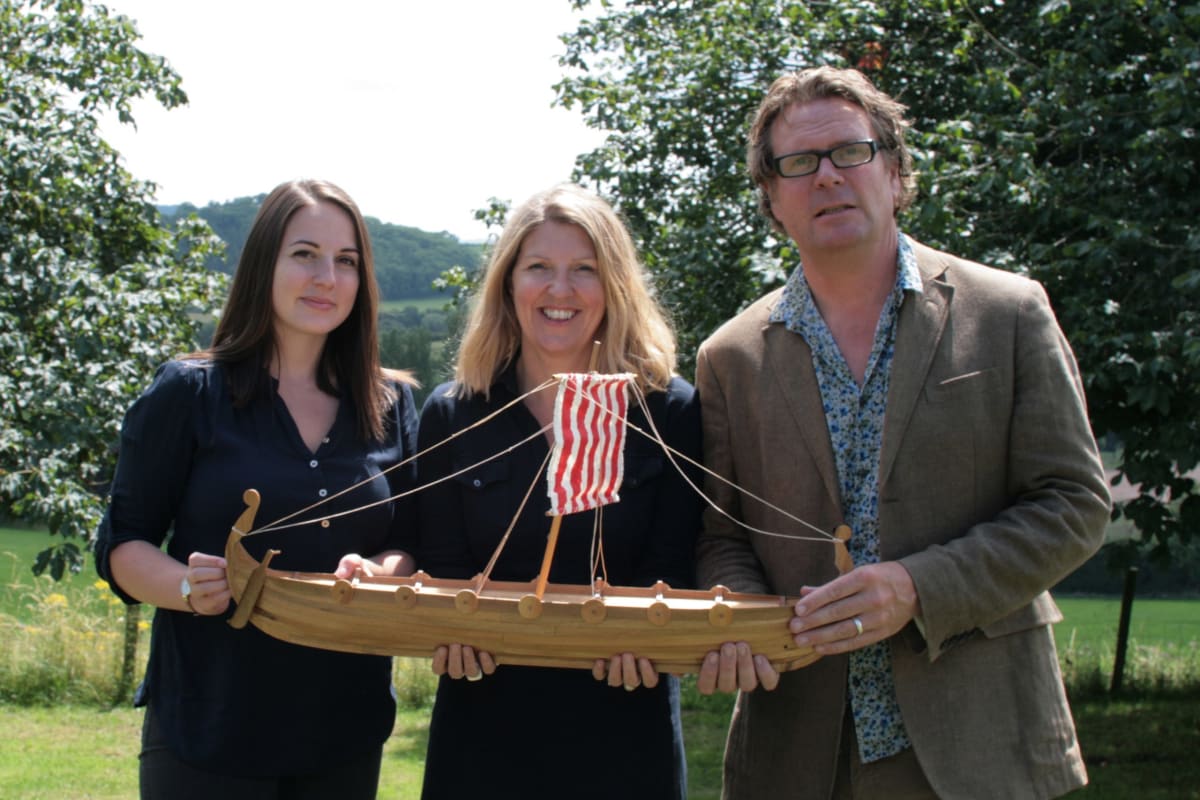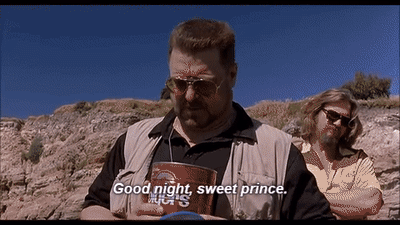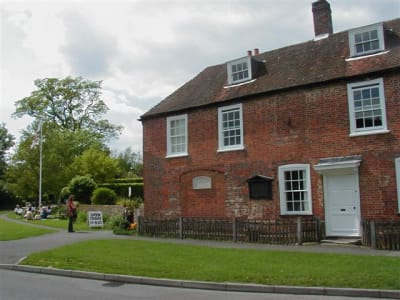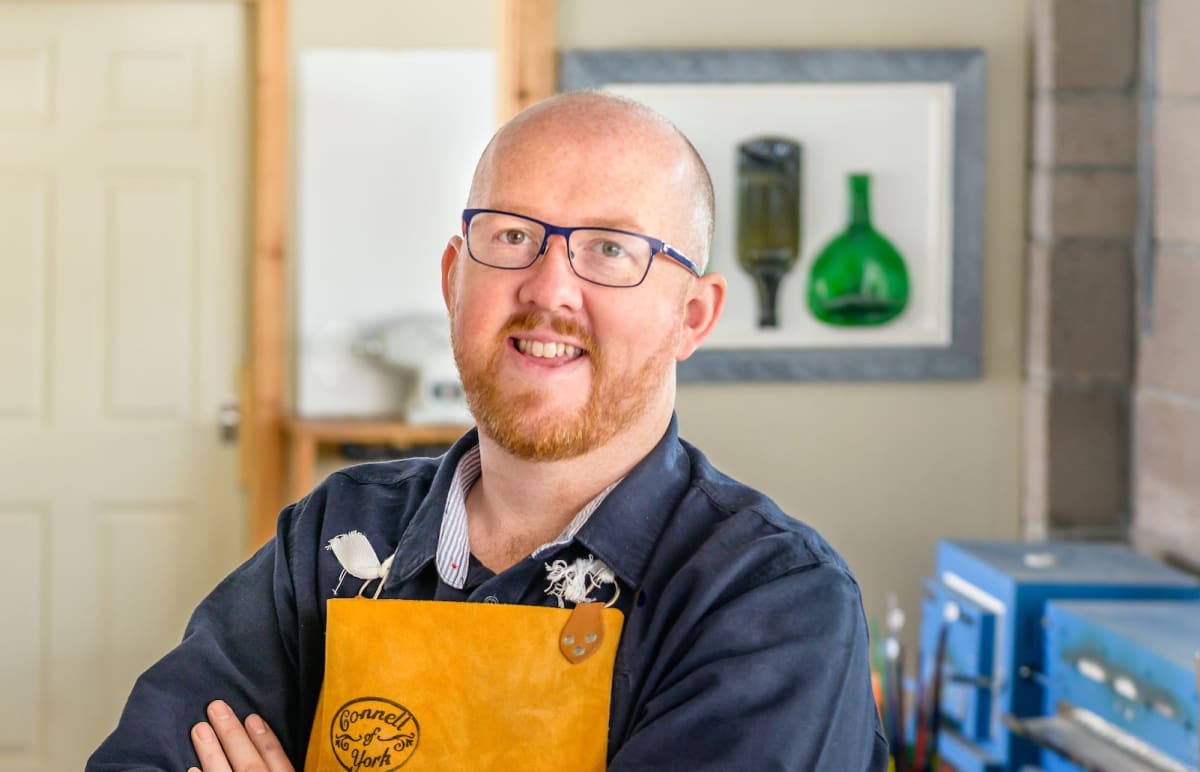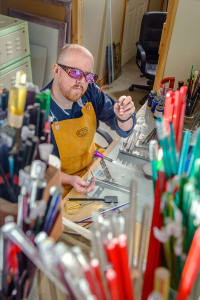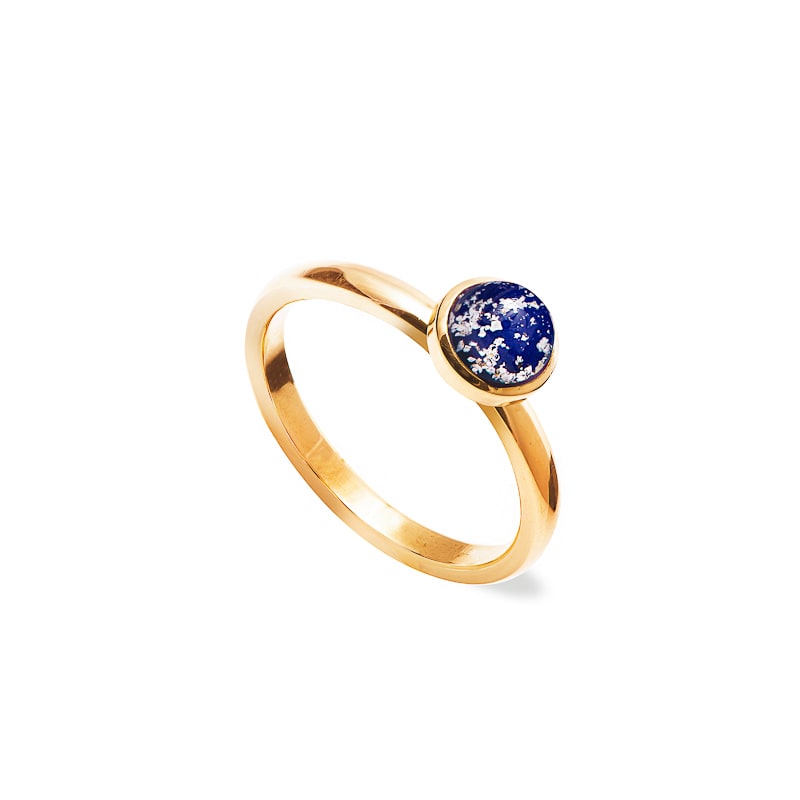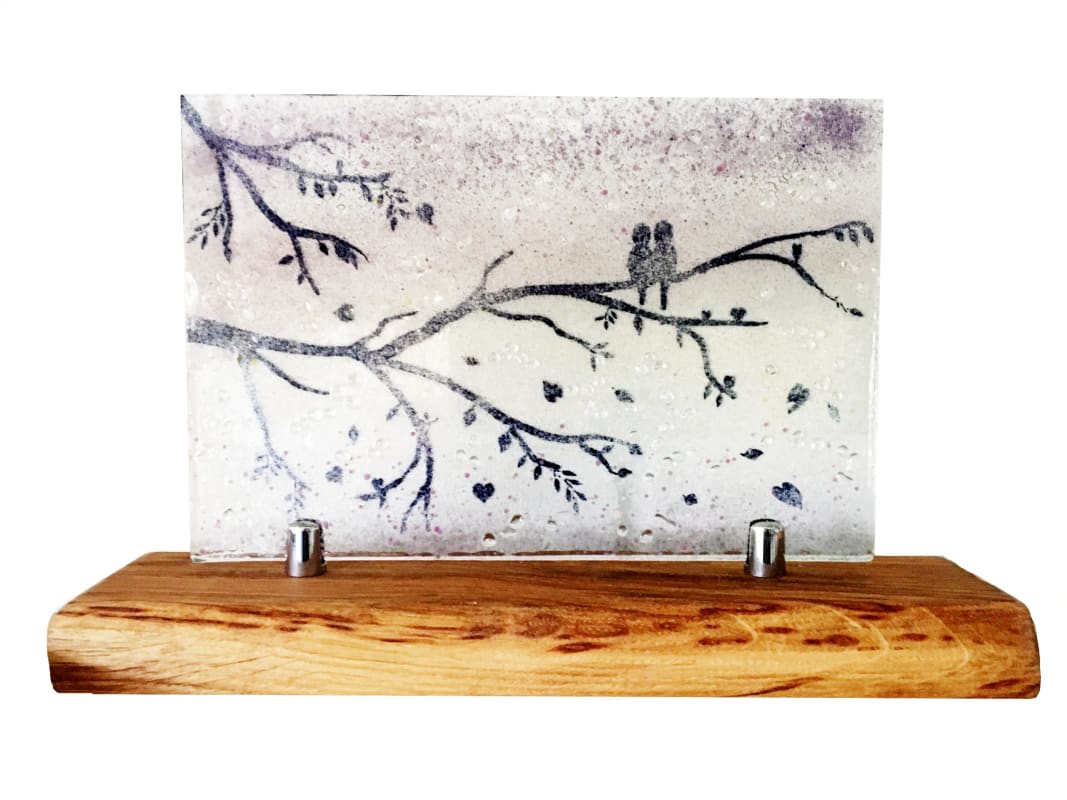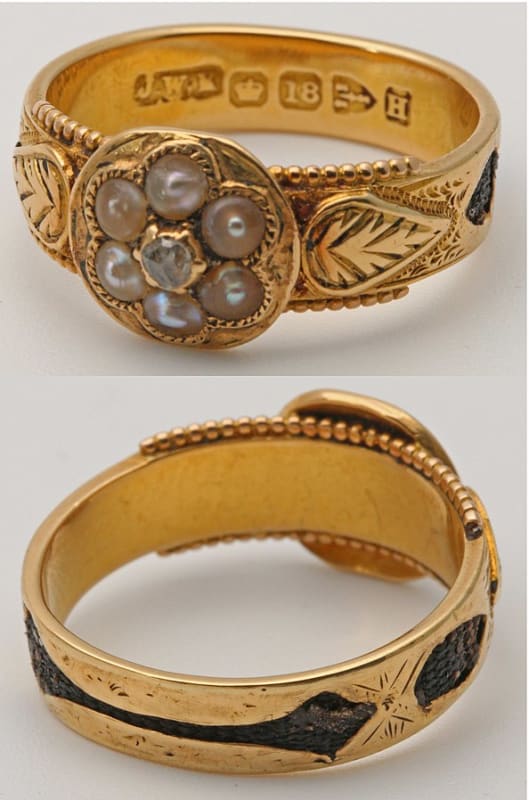
We’ve previously looked at the funeral customs of the world’s major religions to get a flavour of how death and farewells are approached by different faith backgrounds. According to several reports, the number of people classifying themselves as having ‘no religion’ appears to be growing, and so we thought it was high time for us to speak with some funeral celebrants about how non-religious, or humanist funerals work.
We’ve previously touched on the topic of the humanist connection to death and end of life when in conversation with Hester Brown and Trevor Moore at a death café in East Dulwich.
At last month’s National Funeral Exhibition, we approached Mick Chilvers and Tag McEntegart from Humanists UK, an organisation which aims to further humanism as a philosophy and to advocate for secularism throughout the UK. Mick and Tag are part of Humanists UK Celebrant Network, which offers humanist and non-religious funeral ceremonies throughout England, Wales, Northern Ireland and the Channel Islands.

This network aims to ensure that funeral ceremonies for those who live their lives without religion are as meaningful as funerals with a religious foundation.
We were just talking about how our approach to death, here in the UK, is a little skewed when compared with other cultures.
Mick: Death remains a taboo subject here in the UK – we are culturally conditioned to fear death. We have this obsession with the afterlife and as a result we don´t focus on enjoying the life we have. I think that’s what has always attracted me to Humanism – it’s not a set of defined beliefs but the idea that I can live my life by a set of good principles and hold a rational outlook based on scientific evidence.
Tag: I think this taboo is one of the reasons why a lot of unnecessary rituals around death have become popular. People are brought up with the idea that there are certain things that, legally and socially, they think they have to do when someone dies. However, when you start to strip it all away, there is actually very little that you’re ‘required’ to do, apart from having a death certificate signed by a person with the correct authority and making arrangements for the safe storage of the body – which, by the way, doesn’t have to be at a funeral parlour!
When it comes to funerals, almost everything is a matter of choice, but by tradition, people tend to avoid doing things differently because they are convinced that there´s a ‘right’ and a ‘wrong’ way. We need to try and break through this set of assumptions and change our perception of what constitutes a meaningful funeral.
We do seem to have a very stiff upper lip when it comes to death and tend to brush the topic under the carpet. If you even mention the word ‘death’, people automatically attach negative connotations to it…
Tag: It hasn’t always been like this. For us as a country, the change came about in the Victorian and Edwardian times – when there was such a high level of infant mortality and a large number of health epidemics that there was a reason to be fearful and to try and distance ourselves from death.
It’s interesting to see the customs around death in communities and countries where it’s perfectly normal to keep the body of a loved one in the home, like, for example in Italy or Greece, and to compare that to the way in which we approach death here in the UK. In many parts of the world, beyond Europe, there are those who believe in a period of mourning where the body remains at home. It’s a perfectly natural thing to do. In fact, it´s our ‘arms’ length’ approach to death which has tended to alienate us from the reality of the end of life and the deep feelings it catalyses in us. This is best illustrated by the reaction to a recent story, where a grieving husband chose to look after his wife’s body himself, at home. People were so shocked by something that we all used to do before the funeral industry became so professionalised.
Mick: Indeed, our society’s approach to death is very sanitised.
I think avoiding talking about death can lead people to plan funerals that are very traditional and safe, with less of that person’s personality being reflected by the service.
Mick: I think it’s largely a matter of not knowing what is possible. If you don’t know or understand what’s on offer, you stick to what´s deemed normal and expected. One of the most heartening things anyone has said to me after a humanist ceremony is that it was one of the best services they had been to, even though they held strong Christian beliefs. Once people get a taste of something different, they’re able to say, ‘that’s what I’d like to do,’ whereas if they’ve always seen traditional ceremonies, they’re unlikely to consider anything markedly different.
How do you go about a service where the family is religious, but the person who has passed away wasn’t?
Mick: I had one occasion where we had a gentleman ask me if he could say a prayer, as his mother was religious and it was an important part of his childhood. Of course I let him say it because I was sure it would make him feel better about the service. I think the important thing that we (humanists) have to keep in mind is that we are not there to sell anything. My personal opinion is that I shouldn’t say anything with a religious connotation. But I will do everything I can to facilitate it if someone would like to. However, I establish my boundaries right from the beginning and make sure the family is eager to have a funeral that has no religious content.
Tag: We’re not there to proselytise, nor to be zealots on behalf of the humanist cause. That’s actually very anti-humanist. Personally, I wouldn’t read a religious text as it would be hypocritical for me to do so, but if those organising the funeral wanted a family member to do so (for instance an older relative, whose beliefs they wanted to respect and include), I would try to facilitate that. It’s important from the outset though to make sure that the family does want a non-religious ceremony and does want it to be led by a humanist celebrant, to avoid any confusion around the presence of religious elements in the ceremony at a later date.

I can imagine there’s a difficulty when the person who has died divided opinion. How do you avoid negative perceptions of that person coming to the fore during the ceremony?
Tag: It’s about setting boundaries, and making them clear to families from the start. If there are points of tension around family opinions of the deceased, and how his or her life is to be spoken about and remembered, I would try to find a way to address that with the family before the ceremony, to try and work that into the ceremony, into the life story, so that no one feels as though aspects of the deceased’s life have been glossed over. I’ll try to acknowledge that this was a contradictory or complex person. I would try not to leave what is to be said at the service only in the hands of people who might have been hurt, or who are bitter towards the deceased. Naturally, our funeral texts are approved by the families and, once they’ve seen how you can be both respectful and truthful, they’re normally happy with the content. I’ve had families say things like: ‘He was a great dad, especially when we were older, but he could also be very blunt and stubborn, so, when we were kids, sometimes he could be scary, and we want his life story to reflect both sides of the coin.’
People are complex, and you need to reflect that truthfully. As humanist celebrants, our role is to try and capture the story of the person’s life, and their qualities.
Mick: Sometimes you have to think on your feet. I had one occasion where a brother and a sister hadn’t communicated at all. She came to the funeral and asked to speak, and the brother wasn’t too keen on this. So I had to mediate and get an idea of what she was planning to say, and to then convince the brother that she should be allowed to speak at their mother’s funeral.
Tag: What we have to bear in mind is that we have a time slot in a crematorium. If we over-run, the family is charged extra. We therefore need to ensure that it’s planned really precisely; what people are going to say, when they’re going to say it and how long it will take. There’s always the wake if people want to talk more, and a little more freely.
Are there any things that you wouldn’t allow in one of your ceremonies?
Tag: There is very little we wouldn’t allow. We have to be careful when thinking about whether or not something might be seen as tasteful or not, but I believe that it is a very personal thing.
For example, I had a family who wanted to play a song called ‘Smoke Gets In Your Eyes’ at a crematorium ceremony. They were uncertain as to whether the assembled mourners might think it was in bad taste. I asked them what the reason was for their choice of that particular track and they told me the story about how their loved one had been involved in bomb disposal work in Burma towards the end of World War II. He was part of a six-man unit and, as part of the war effort, the English Folk Song and Dance Society had sent them –and other units who were in out of the way places– a wind-up gramophone and six old-style bakelite records, which were nothing like as durable as the vinyl ones that replaced them. Ultimately, five of the records had got broken and the only one left was the one with that song, which the soldiers played until they wore the grooves off the disc. The music was absolutely intrinsic to this man’s life. So we played it at the start of the ceremony, as his coffin was brought in, and started the ceremony with the story about why this song had been so important to the deceased. If I’d simply had a kneejerk reaction and said ‘no, we can’t possibly have that song in a crematorium,’ we would have lost such a rich part of the man’s life story concerning the bond with his bomb-disposal comrades.
Do you have any final words about being a humanist celebrant?
Mick: Only that I am always humbled by families’ willingness to entrust their loved one’s farewell to a stranger and to let us walk alongside them. It´s a huge honour and what you come to respect over time is that the overwhelming majority of people really do lead the best lives they possibly can. A humanist celebration of life is exactly that – a celebration of the good that that person gave to the world and to their loved ones.
Thank you both, enjoy the rest of the exhibition.
When arranging a funeral, you can either find a humanist celebrant independently of your funeral director, or ask your chosen funeral director to recommend one.

